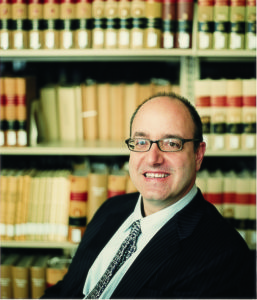From the Dean

One of the great privileges of my job is that I get to spend so much of my time meeting Stanford Law School’s remarkable students and alumni. We seem to attract a particular kind of person, and the difference is noticeable and notable, even during law school. Stanford Law students have more well-rounded, three-dimensional lives than the students I have seen and known at other schools. They work plenty hard, and they care about their studies. But they balance this with a wide variety of other activities. And, no, I do not mean golf or tennis (though Stanford’s students do, of course, take advantage of living in the Bay Area). I mean that our students balance the learning they are doing in the classroom with outside activities that pertain to their professional goals and aspirations. They are entrepreneurial in the best spirit of Silicon Valley (though whether they are drawn here by reputation or changed by breathing the air and drinking the water, I cannot say).
Our students do things, things that are different and surprising. One Stanford Law student started a nonprofit organization that helps kids to stay in high school. Others started a company that assists people in protecting their reputation on the Internet. Still others organized women law students around the country on issues in common, founded a nationwide movement to “build a better legal profession,” developed a successful website for nonpartisan political debate, and forged a relationship with the American University in Afghanistan to help create a new legal curriculum for the country. And I could go on (and on). Stanford Law students use their time here creatively, taking advantage of what Stanford has to offer to begin making a difference even before they leave.
No wonder, then, so many of our graduates go on to lead professional lives that are similarly unconventional. Most, to be sure, go on to find rewarding careers and fulfilling lives in practice, and the leadership ranks of the bar are chock full of SLS graduates. But practicing law turns out not to be the life for everyone, and many choose something different or find that serendipity and opportunity take them in unexpected directions.
In this issue of Stanford Lawyer, we focus on a few of these mavericks, just to give a flavor of the many paths a Stanford Law degree makes possible. For we pride ourselves in the belief that while a Stanford Law education is superb preparation for legal practice, it equips one equally well for any calling that requires rigorous, creative thinking.
Late last fall, I received a letter from the Abbey of Regina Laudis that makes the point eloquently. “Dear Dean Kramer,” it begins:
“I am an alumna of the law school Class of 1986, where my name was Monica Evans. Since then I have become a contemplative Benedictine nun and my religious name is Sister Elizabeth Evans. After graduation I dutifully joined the lock-step procession to big-firm practice on Wall Street (there were student loans to be paid off, after all), changing careers to teach at Santa Clara Law School at the point when I could no longer silence the voice that kept urging ‘really, none of this interests you.’ (And, by then, my student loans were paid off.)
Over the years I have received many solicitations for contributions to the Law Fund, invariably accompanied by ‘check the box’ options for preferred amount of payment and preferred method of payment. Prior to my life as a nun there was always a box that I could check off, even if it were a box marked ‘other $____’ (I never did make it to the Dean’s Circle). But now, as a contemplative nun, I find no box that I can check. Contemplatives work at a level that is, and aspires to be, totally ‘other.’ I very much desire to support the law school’s mission of ‘seeking solutions and educating leaders,’ but as a contemplative nun I must do so ‘out of the box.’
And so, if there is room at the law school for a donation of prayers to support you in your arduous mission, please accept mine in gratitude for an incomparable legal education that, above all, challenged me to live and think out of the box.”
Sister Elizabeth captures perfectly (and, for me, movingly) what we really aspire to do at Stanford Law School, what we hope all our graduates—regardless of where life carries them—take away from here.
